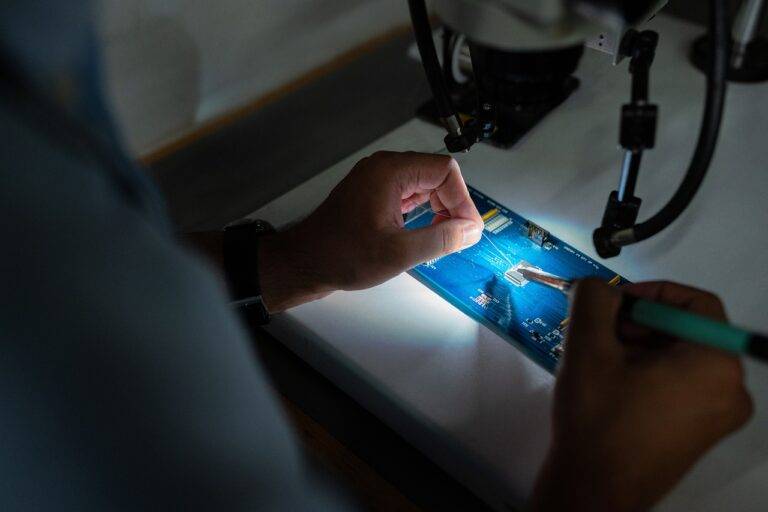Smart Clothing: The Future of Wearable Tech
Wearable technology has become an integral part of our daily lives, seamlessly blending fashion with functionality. From smartwatches and fitness trackers to virtual reality headsets and smart clothing, these devices aim to enhance convenience and improve our overall well-being. One of the key features of wearable technology is its ability to collect and analyze data, providing users with valuable insights into their health, fitness levels, and daily activities.
In addition to personal health and fitness, wearable technology has also made significant advancements in various industries, including healthcare, sports, and fashion. In healthcare, wearable devices are being used to monitor patients’ vital signs, track medication adherence, and provide real-time health alerts. In the sports industry, athletes are leveraging wearable technology to analyze their performance, track their progress, and prevent injuries. Moreover, in the fashion industry, smart clothing is revolutionizing the way we interact with our garments, offering features like temperature regulation, activity tracking, and even gesture control.
History of Smart Clothing
Smart clothing has a fascinating history that traces back to the early 1980s when the concept of wearable technology began to take shape. The first significant development in smart clothing occurred in 1984 with the creation of the seminal Wearable Motherboard by Steve Mann, a pioneer in the field of wearable computing. This early innovation set the stage for the evolution of smart clothing as a merging of technology and fashion.
The 21st century saw a surge in the popularity and advancement of smart clothing, with notable milestones including the introduction of garments embedded with sensors to monitor vital signs and track physical activity. Companies like Google and Levi’s have been at the forefront of producing innovative smart clothing designs that seamlessly integrate technology into everyday wear. As smart clothing continues to evolve, it promises to revolutionize the way we interact with our clothing and the world around us.
Benefits of Smart Clothing
Smart clothing offers a range of benefits that go beyond just tracking fitness metrics. One key advantage is the seamless integration of technology into our daily lives without the need for carrying additional devices. This convenience allows users to monitor their health, receive notifications, and stay connected without disruption.
Furthermore, smart clothing promotes a more active lifestyle by providing real-time feedback on performance and encouraging users to meet their fitness goals. The personalized insights and coaching that smart clothing offers can enhance motivation and accountability, leading to improved overall well-being.
What is wearable technology?
Wearable technology refers to electronic devices that are worn on the body and can perform a wide range of functions.
What is the history of smart clothing?
Smart clothing has been in development for several decades, with early prototypes dating back to the 1980s. However, it has gained popularity in recent years with advancements in technology.
What are some benefits of smart clothing?
Some benefits of smart clothing include tracking health and fitness data, providing real-time feedback on performance, enhancing safety and security, and offering convenience through hands-free operation.
How does smart clothing track health and fitness data?
Smart clothing is equipped with sensors that can measure various biometric data such as heart rate, calories burned, and steps taken. This data can then be analyzed to provide insights on overall health and fitness levels.
Can smart clothing help improve athletic performance?
Yes, smart clothing can provide real-time feedback on performance metrics such as posture, stride length, and movement patterns, enabling athletes to make adjustments and optimize their performance.
How can smart clothing enhance safety and security?
Smart clothing can be outfitted with GPS tracking, emergency alert systems, and other safety features that can help users stay safe and secure in various situations.
Are there any privacy concerns associated with smart clothing?
Yes, there are privacy concerns related to the collection and sharing of personal data through smart clothing. It is important for users to be aware of how their data is being used and to take steps to protect their privacy.





